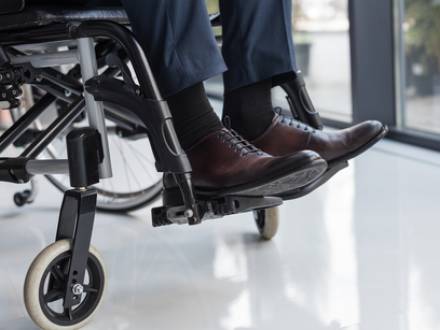Principal Office Located at 1424 Gables Court, Plano, TX 75075
Call Today For a Free Case Evaluation
Can You Get SSDI Benefits for a Partial Disability?
 When you cannot work due to a medical condition, Social Security Disability Insurance (SSDI) may provide financial relief. Knowing the difference between partial disability and total disability helps you determine whether you qualify for benefits. If you are navigating the SSDI process, a Collin County, TX SSDI lawyer can help you gather the right evidence to present a strong claim.
When you cannot work due to a medical condition, Social Security Disability Insurance (SSDI) may provide financial relief. Knowing the difference between partial disability and total disability helps you determine whether you qualify for benefits. If you are navigating the SSDI process, a Collin County, TX SSDI lawyer can help you gather the right evidence to present a strong claim.
Does the SSA Recognize Partial Disability?
The Social Security Administration (SSA) does not recognize "partial disability." In workers’ compensation programs, you may hear about partial disability benefits. These are available when someone can still do some work, but at a reduced capacity. However, SSDI works differently.
Under 42 U.S.C. § 423(d)(1)(A), disability is defined as the inability to perform substantial work activity due to a medical condition that is anticipated to persist for at least 12 months or to be fatal.. For example, if you can no longer perform heavy labor but can still work in a less demanding job, you may not qualify for SSDI, even though you are "partially disabled."
What Is Substantial Gainful Activity for SSDI?
Substantial gainful activity is the standard the Social Security Administration uses to decide whether your work counts as employment despite a disability. For 2025, the monthly SGA limit is $1,620 for non-blind individuals and $2,700 for blind individuals. If you earn above these amounts, you are generally considered capable of substantial work and not eligible for SSDI.
How Can You Prove Total Disability for SSDI Benefit Purposes?
You are responsible for proving that you need SSDI benefits, and the SSA relies heavily on strong documentation. Under 20 C.F.R. § 404.1512, applicants are required to provide all medical and nonmedical evidence that is relevant to their claim. Examples of useful evidence include:
-
Medical records and test results that confirm your diagnosis and ongoing treatment
-
Statements from your treating doctors explaining your physical or mental limitations
-
Work history that shows you can no longer perform your previous job duties
-
Residual Functional Capacity (RFC) assessments outlining what activities you can and cannot do
-
Supporting documentation such as hospital records, prescription lists, or therapy notes
When Do You Need Legal Representation To Apply for Disability?
Applying for SSDI is rarely simple. Many claims are denied at the initial stage, not because the applicant is not disabled, but because the paperwork is incomplete or the medical evidence is not presented clearly. Having an attorney can make a significant difference.
A lawyer will gather and organize your medical records, work with your doctors to prepare strong reports, and ensure that your application meets the SSA’s requirements. If your claim is denied, your legal representative will also walk you through the appeal stage. For applicants with complex medical issues or prior denials, consulting an attorney early in the process can save time and improve the chances of receiving benefits.
Contact a Dallas, TX SSDI Attorney Today
Proving total disability requires careful evidence gathering and a clear presentation of your medical and work history. With more than 60 years of combined legal experience, the attorneys at The Law Offices of Coats & Todd bring both knowledge and dedication to every case. We have earned recognition through multiple professional awards and have served in leadership roles within respected groups such as the National Association of Social Security Claimants’ Representatives and the Dallas Association of Social Security Claimants’ Attorneys.
If you plan to apply for SSDI benefits, our knowledgeable Collin County, TX SSDI lawyers can guide you through the process. Contact our office today at 972-671-9922 to schedule a consultation.

 972-671-9922
972-671-9922





